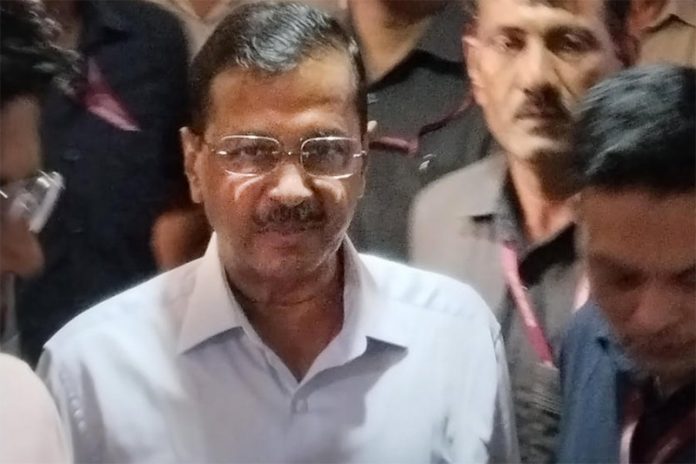NEW DELHI, Apr 9: Political considerations are not relevant to the legal process, the Delhi High Court said on Tuesday, as it dismissed Chief Minister Arvind Kejriwal’s petition challenging his arrest in a money laundering case and questioning its timing, holding that an investigation against “classes and masses” cannot be different.
Kejriwal, who was arrested by the ED on March 21 after he skipped nine summonses for his appearance, had argued that the federal anti-money laundering agency could have questioned him through video conference or by sending a questionnaire or quizzed him at his residence.
“In this court’s opinion, this contention has to be rejected since the investigating agency under the Indian criminal jurisprudence cannot be directed to conduct the investigation in accordance with convenience or dictates of a person. …Investigation qua classes and masses cannot be different,” Justice Swarana Kanta Sharma said in her verdict.
The investigation, she said, has to take its own course, and if the investigating agency was directed to visit the house of every such person for probe, the very purpose of investigation would be lost and end in chaos.
“This court would not lay down two different categories of laws– one for the common citizens and the other granting special privilege to be extended by investigating agencies either to a chief minister or any person in power only on the basis of being in public office…The accountability of public figures has to be held through the public,” it said.
The court observed that it cannot accept Kejriwal’s contention that he was arrested on account of the upcoming Lok Sabha polls, adding that the issue has to be examined only in the context of law, and not the timing.
“In the absence of any malafide intention on part of ED which could be apparent on record, accepting this argument would mean that in case the petitioner would have been arrested in October 2023 itself, his arrest would not have been challenged on the ground of malafide since elections were not declared at the time,” the court observed.
“Kejriwal also must be aware of the impending Lok Sabha election dates which were likely to be declared in the month of March 2024. He would have known when LS elections will be declared and he would be very busy at that time,” it added.
The court opined said upholding Kejriwal’s stand would mean allowing a person, who delays in presenting himself before the investigating agency, to take advantage of the situation and later plead malafide.
“ED was in possession of enough material which had led them to arrest the present accused.. Non-joining probe by Kejriwal was only a contributory factor and not the only factor,” it said.
The court clarified the present case was not of a “conflict” between the Centre and the Delhi CM, and it was crucial to focus solely on the legal merits of the case.
“When confronted with cases involving political figures, the judiciary relies on the Constitution and that is the only paramount consideration before this court.. Political considerations and equations cannot be brought before a court as they are not relevant to the legal process,” it said.
“Courts are concerned with constitutional morality and not political morality…An attempt to introduce political considerations into the proceedings would undermine the integrity of the legal process and would compromise the process of justice. Therefore it is essential for this court to remain vigilant in ensuring that the case is adjudicated based on only legal principles and not influenced by any extraneous factors,” it said. (PTI)


